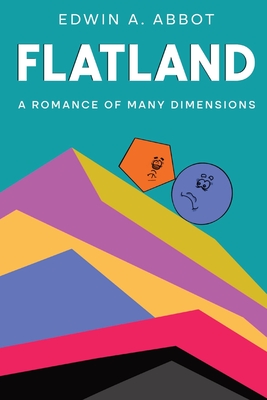Section 22: How I then tried to diffuse the Theory of Three Dimensions by other means, and of the result
bySection 22 – Flatland reveals a deeply personal and philosophical crisis that unravels slowly within the mind of the narrator. As the realization of a Third Dimension settles into his consciousness, he struggles to share this vision with others who are confined to thinking only within their two-dimensional limitations. His initial excitement turns to despair as even his grandson—bright and inquisitive—dismisses his attempts at explanation. The rejection wounds more deeply because it comes from someone he hoped would carry the torch of discovery forward. These interactions highlight the vast divide between knowing something profound and being able to communicate it meaningfully to others. As he grows more obsessed, the narrator’s relationships begin to deteriorate. He finds solace not in conversation but in writing, carefully crafting a manuscript that couches his discoveries in metaphor to avoid legal repercussions.
The pressure of silence and the weight of knowing a higher reality begin to distort the narrator’s world. When he presents his views at a gathering of the Speculative Society, his enthusiasm overcomes his caution. In the heat of the moment, he reveals more than he should, hoping for understanding. Instead, he is met with fear and suspicion. His actions are judged not as enlightenment but as dangerous heresy. He is arrested, tried, and ultimately sentenced to life imprisonment. The cell becomes both his punishment and his sanctuary. Within its confining walls, he continues to explore the Third Dimension in his mind, clinging to the fragile hope that someone, someday, will read his account and understand. The loneliness he experiences underscores how often truth is punished when it challenges the prevailing norms.
Years stretch on in silence, broken only by the occasional visit from his brother. Though the narrator tries once more to open a mind to broader space, his demonstrations fall flat. His brother watches without comprehension, then departs, leaving behind the heavy air of disappointment. The narrator’s spirits flicker between steadfast belief and creeping doubt. At times, he wonders if the Sphere and the vision of Space were illusions conjured by a fevered brain. Yet he cannot fully deny the clarity with which they appeared. These internal debates mark a descent not into madness, but into a deeper confrontation with the fragile nature of perception. Is truth still truth if no one believes it? That question haunts him more than the prison bars ever could.
A revised preface to the second edition offers a distant reflection on the narrator’s fate. The editor, addressing contemporary critics, defends the narrator’s intentions and intellectual growth. Though the early writings carried biases shaped by the rigid class structure of Flatland, the years of contemplation and isolation have softened some of those views. The narrator, once proud and dismissive, comes to admire the very groups he had previously overlooked. Women and lower-dimensional figures, once treated with condescension, are now seen through a lens of potential and dignity. This evolution is not only a personal triumph but a subtle indictment of Flatland’s stagnant societal norms. The editor’s comments imply that reform—both dimensional and cultural—remains possible, if only minds are opened.
There’s an echo of Prometheus in the narrator’s final reflection. Just as the mythic figure suffered for delivering fire to humanity, the narrator endures imprisonment for trying to share higher-dimensional truth. The allegory is not accidental; it frames the pursuit of knowledge as both noble and perilous. Ignorance, in Flatland, is not just common—it is enforced. This strict adherence to convention ensures safety, but it also suffocates growth. In calling for dimensional awareness, the narrator also calls for intellectual rebellion. He understands now that truth must sometimes wait for the right generation to hear it. The story, then, becomes a quiet rebellion in itself: one square’s attempt to leave a record for minds not yet ready but someday capable of seeing beyond their flat world.


